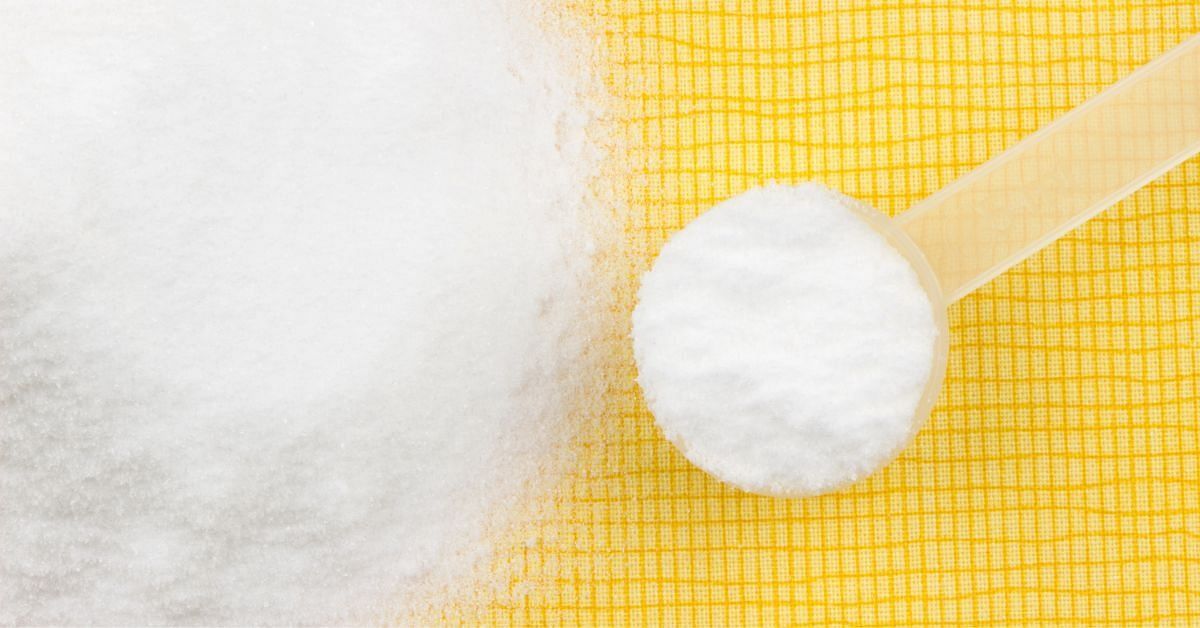Creatine Monohydrate 101: Ultimate Guide
Unlock the full potential of Creatine Monohydrate with this ultimate guide. Learn about benefits, usage and side effects for better muscle growth.

Creatine monohydrate is a popular dietary supplement used by athletes, bodybuilders, and fitness enthusiasts to increase muscle mass and strength. It is a naturally occurring compound found in small amounts in certain foods, such as red meat and fish, but is also available as a supplement in powder or pill form.
What is Creatine Monohydrate?
Creatine monohydrate is a form of creatine, which is a molecule that helps supply energy to cells in the body, particularly muscle cells. It is composed of a creatine molecule and a water molecule. When consumed, it is broken down into creatine and water, which is then used by the body to create adenosine triphosphate (ATP), the primary energy source for cells.
How Does Creatine Monohydrate Work?
Creatine monohydrate works by increasing the amount of creatine stored in muscle cells. This, in turn, allows the muscles to produce more ATP, which leads to increased strength and endurance during exercise.
Why Creatine Monohydrate is the Best
Here are five science-backed reasons why this form is the best.
1. Has the Best Safety Record
Creatine monohydrate is extremely safe to consume, according to numerous studies.
"There is no compelling scientific evidence that the short- or long-term use of creatine monohydrate has any detrimental effects," the International Society of Sports Nutrition recently concluded in its research.
According to studies, consuming monohydrate for two to five years appears to be safe, with no negative effects documented.
At higher doses, this supplement is safe as well. Despite the fact that a typical daily dose is 3-5 grammes, people have taken doses as high as 30 grammes per day for up to five years with no reported safety concerns.
Creatine increases the water content of muscle cells and can aid in mass muscle gain. Any weight gain caused by using this supplement is due to an increase in water or muscle, not fat.
2. Is the Easiest to Find
Some of the most recent creatine forms are only available in multi-ingredient products such as pre-workout supplements.
If you purchase these, you will be paying for several other supplements in addition to the one you desire.
Furthermore, these additional ingredients are frequently unnecessary and have a different scientific backing than creatine.
Creatine in other forms, such as hydrochloride and ethyl ester, can be purchased separately.
However, these are only available from a few online and in-store retailers.
In contrast, the monohydrate form is readily available as a single ingredient.
You can find creatine monohydrate without any other ingredients by conducting a quick online search.
3. Has the Most Scientific Support
The monohydrate form has been used in the vast majority of the over 1,000 studies on creatine.
Aside from this form, the most common forms of creatine on the market are:
- Creatine ethyl ester
- Creatine hydrochloride
- Buffered creatine
- Liquid creatine
- Creatine magnesium chelate
While a handful of studies have been conducted on each of these forms, information on the effects of these forms on humans is limited.
Almost all of the health and fitness benefits of taking creatine supplements have been demonstrated in monohydrate studies.
These advantages include increased muscle mass, improved exercise performance, and potential brain benefits.
According to research, this supplement can boost strength gains from a weight-training programme by 5-10% on average.
Furthermore, a comprehensive review of dietary supplements discovered that creatine monohydrate was the most effective for muscle gain.
Who Should Use Creatine Monohydrate?
Creatine monohydrate is safe for most adults to use and can be beneficial for a variety of people, including athletes, bodybuilders, and fitness enthusiasts. It may also be beneficial for older adults, as muscle mass and strength naturally decrease with age. It is important to note that people with kidney or liver disease should not take creatine monohydrate.
Dosage and Timing
The recommended dosage for creatine monohydrate is usually around 3-5 grams per day, taken in divided doses throughout the day. It is most effective when taken before and after exercise. It is also important to stay hydrated while taking creatine monohydrate, as it can cause muscle cramping and dehydration if not taken with enough water.
Safety and Side Effects
Creatine monohydrate is considered safe for most adults when taken in recommended doses. However, some people may experience side effects such as weight gain, muscle cramping, and stomach discomfort. It is also important to note that individual tolerance and sensitivity can vary, and people with pre-existing medical conditions should consult with a healthcare professional before taking creatine monohydrate.
Over to You
Creatine monohydrate is a safe and effective supplement for most people when used as directed. It can help increase muscle mass and strength and improve exercise performance and it is widely studied for its benefits. Consult with a healthcare professional before taking creatine monohydrate if you have any medical conditions.

